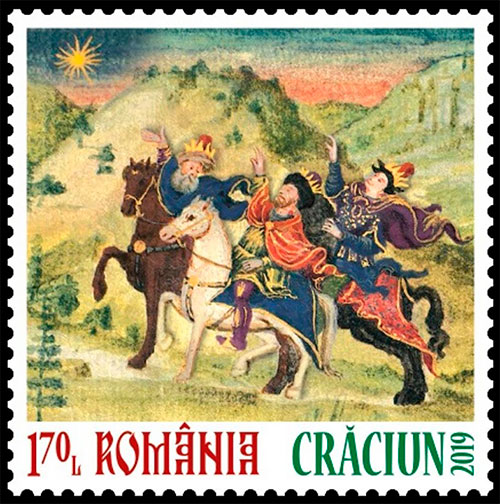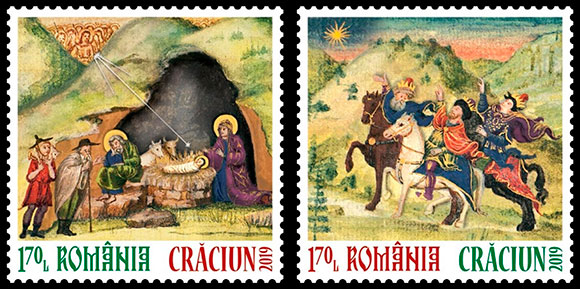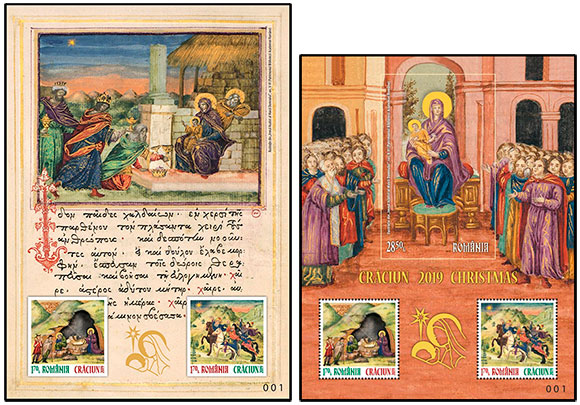
On November 15, 2019, the Romanian Post issued a series of postage stamps dedicated to Christmas.
The new Christmas series consists of 2 stamps, a souvenir sheet and 2 miniature sheets. During the design of the series, the artist Mihail Vămășescu turned to the ancient Byzantine manuscript of the Akathist Hymn of the Mother of God, kept in the library of the Romanian Academy.
Akathist is a type of church hymn, a solemn song of praise, which is read in gratitude to the Lord, the Mother of God or the patron saints. The library of the Romanian Academy contains a 17th century Greek manuscript, written in the Vatopedi monastery on Mount Athos.
On the stamps of the series, each with a denomination of 1.70 lei, fragments of two book miniatures from the handwritten akathist: "The Birth of Jesus Christ" and "The Star of the Magi" are reproduced, and a miniature "The Mother of God with the Child" is reproduced on the souvenir sheet with a denomination of 28.50 lei. Numbered miniature sheets contain 2 and 3 stamps of the series.

The birth of Jesus was accompanied by an amazing celestial phenomenon - the appearance of a bright and unusual star in the sky. She became a guiding star for the astrologers from the East, showing them the way to the birthplace of the baby Jesus. The journey for the Star of Bethlehem and the adoration of the Magi is a very popular biblical subject, often found in church books and icons. Initially, in the Gospel, the names and orders of the people who brought gifts to Jesus are not mentioned. The idea of the Magi as Eastern kings finally took shape in medieval Europe around the 9th century, at the same time they acquired the names: Melchior, Caspar and Belshazzar. More and more information about the three wise men appears in later sources. Melchior was an elder and king of Arabia, Kaspar was a youth and king of Tarsus, and Belshazzar was a middle-aged man and king of Ethiopia. The Magi presented the baby with gold as a king, incense as for God and myrrh as a person who will be buried.

Перейти в каталог


